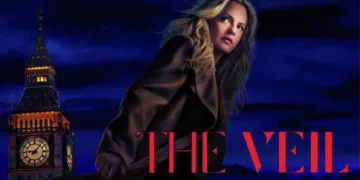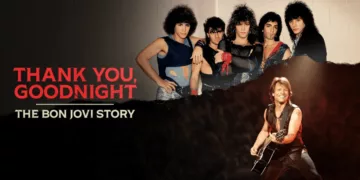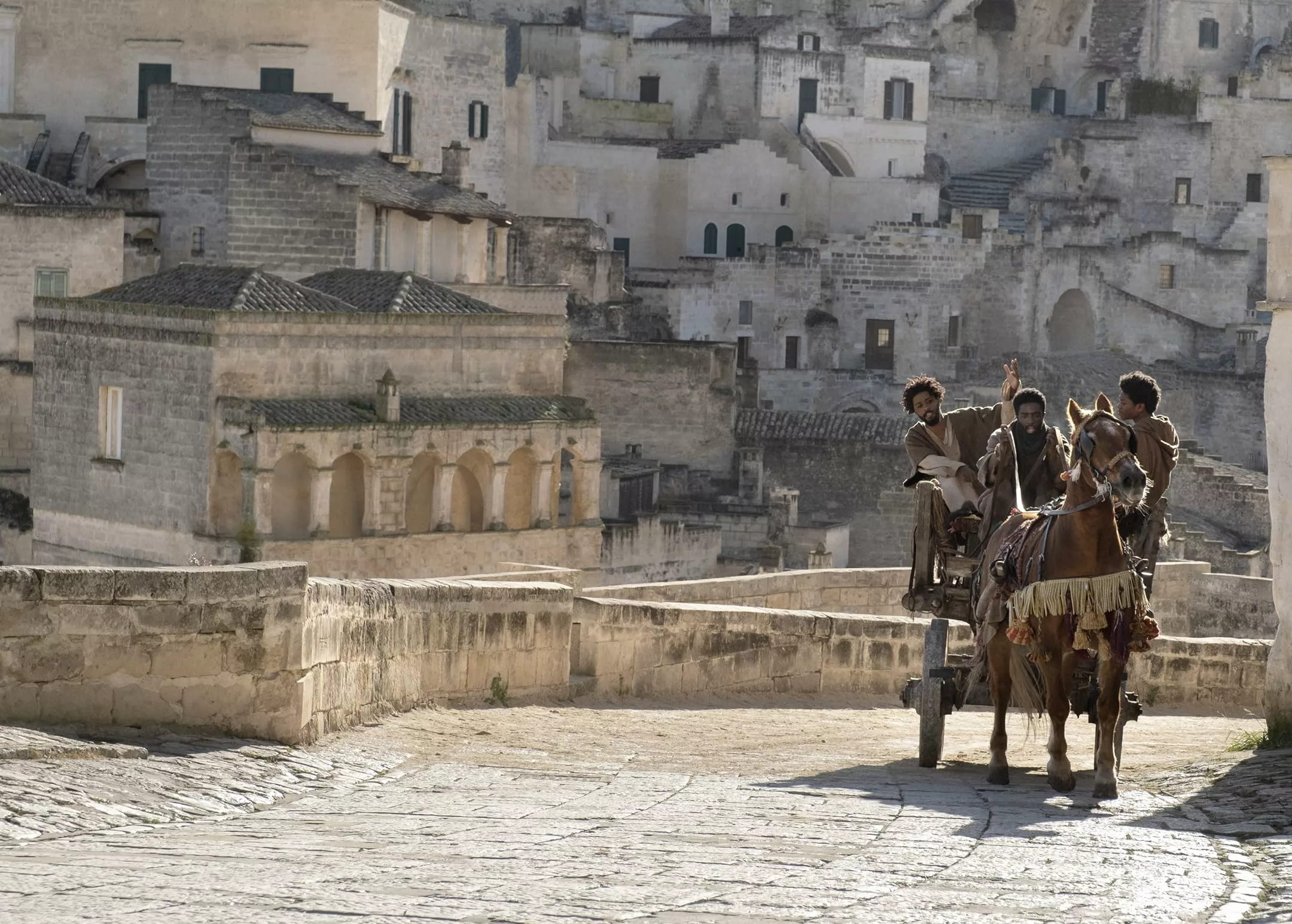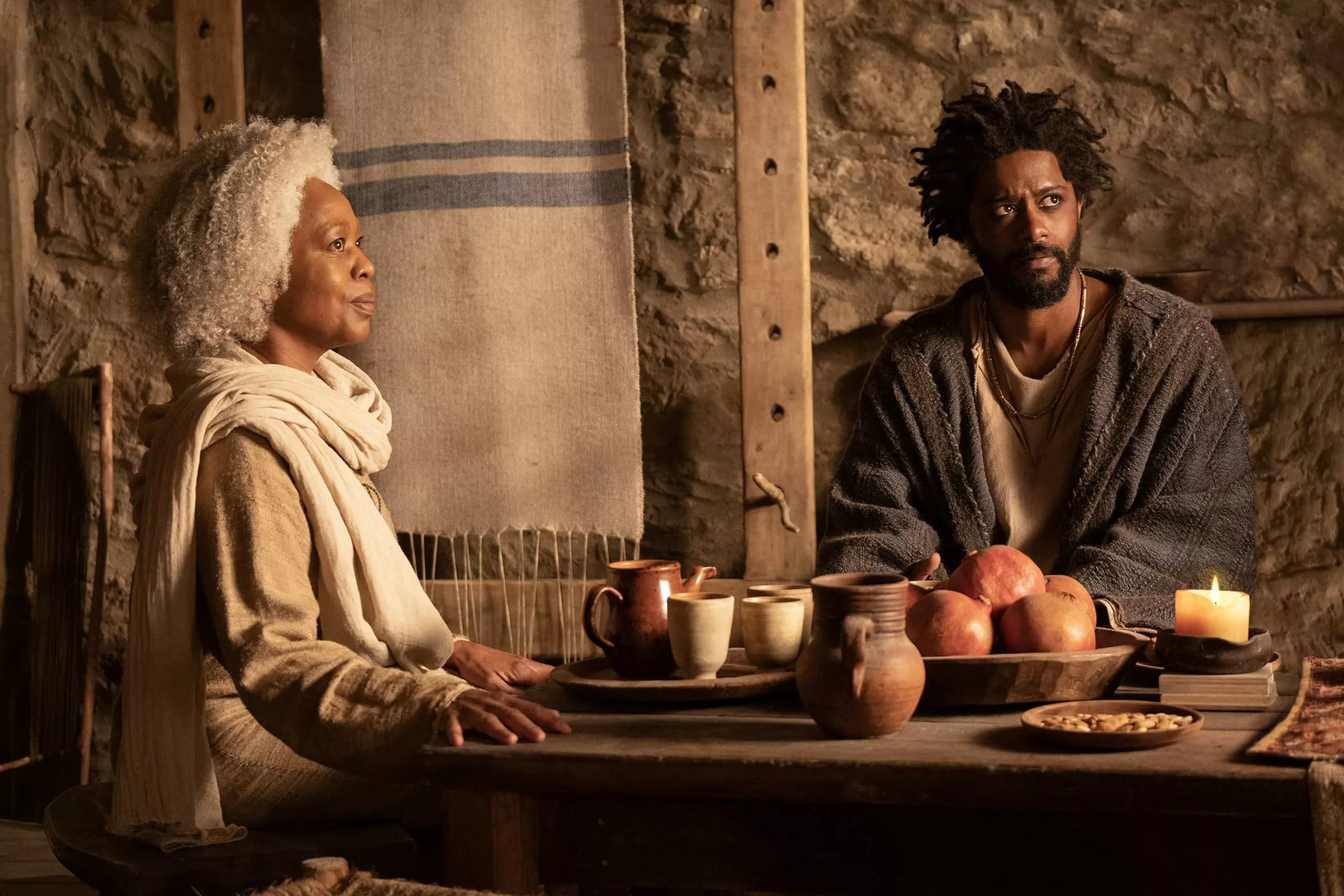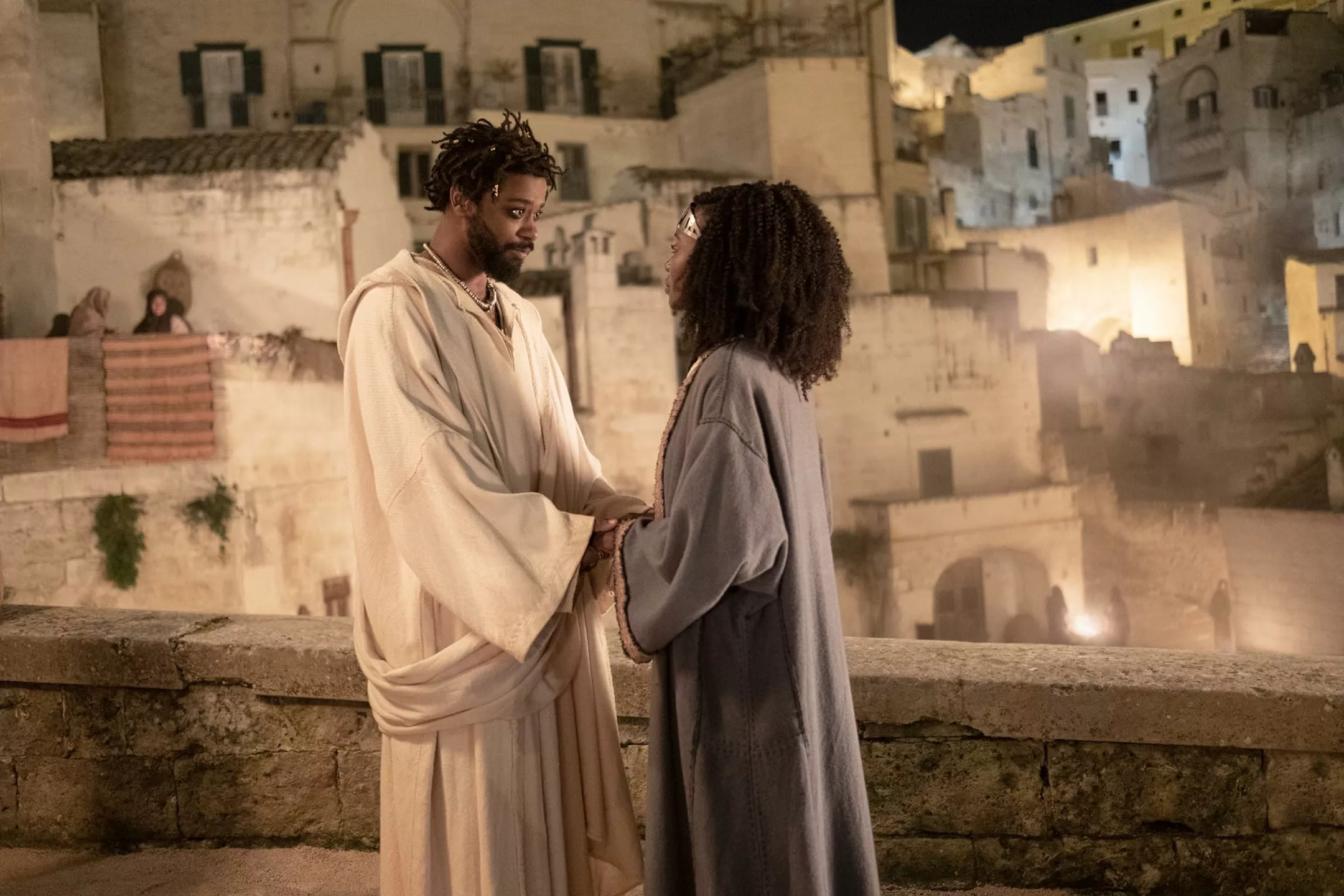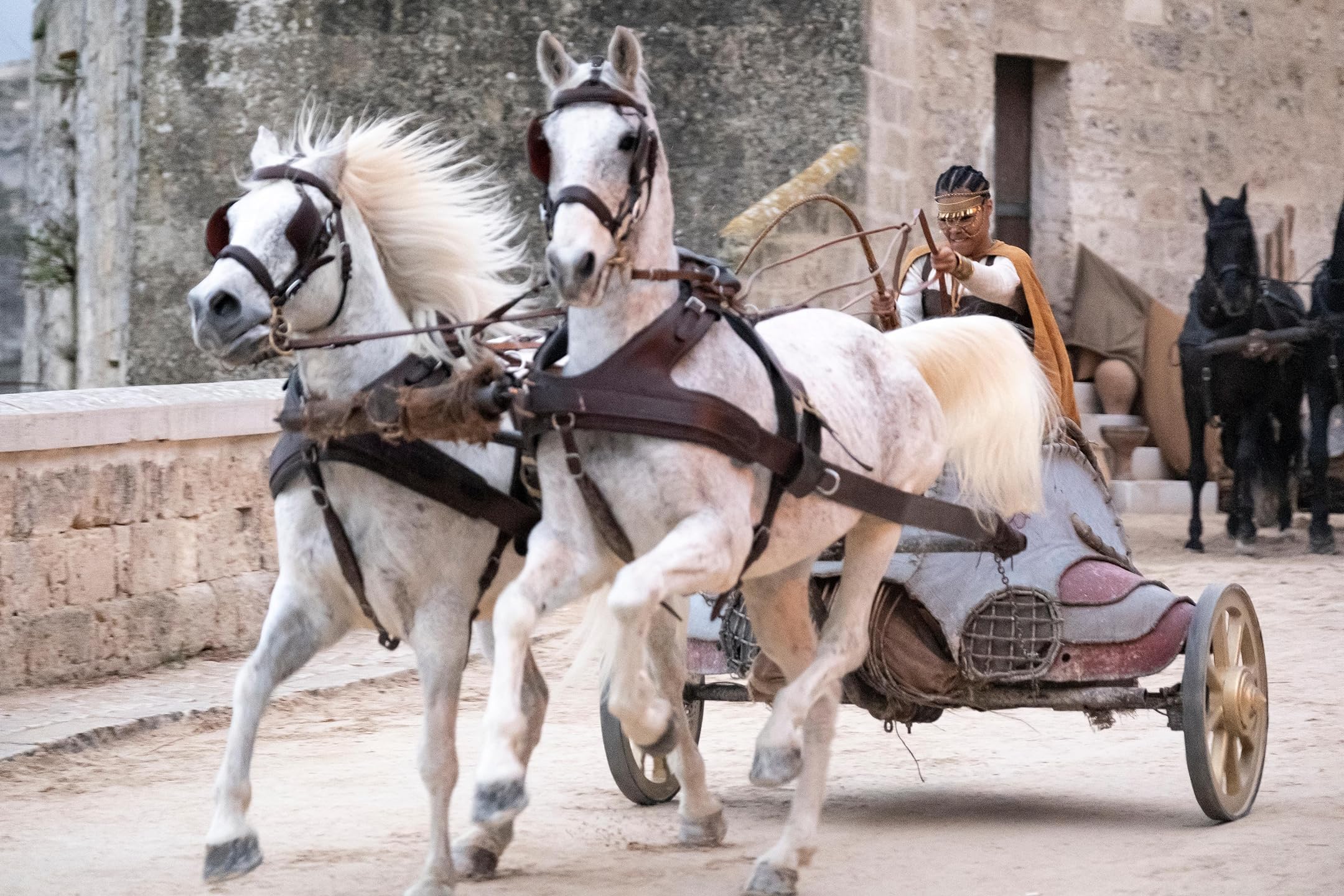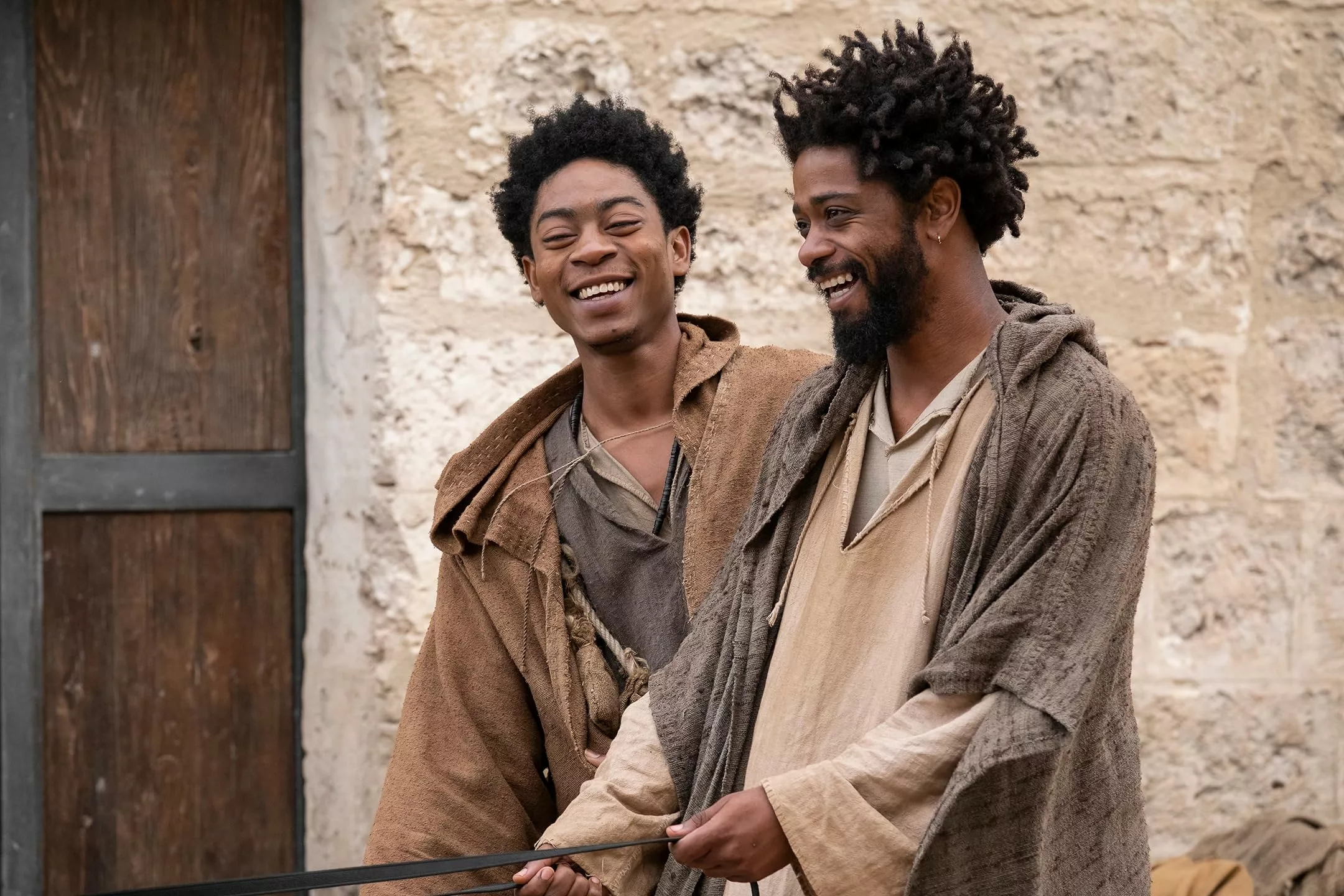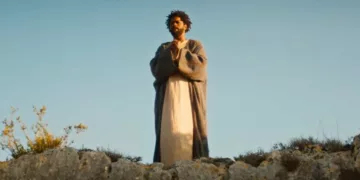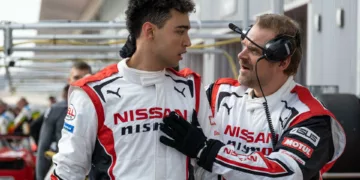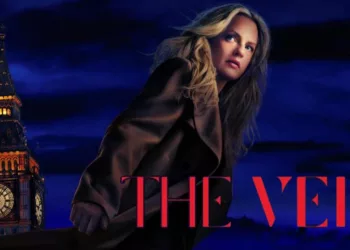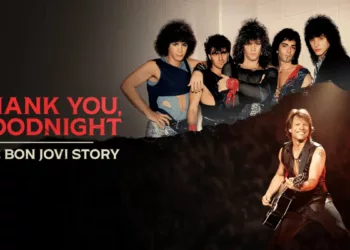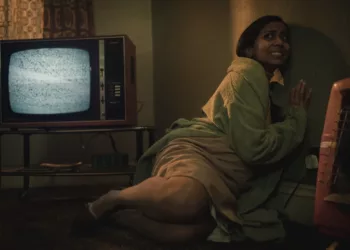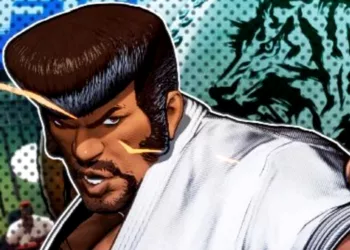Jeymes Samuel may not be a household name yet, but this multitalented British filmmaker is one to watch. After turning heads in 2021 with his directorial debut The Harder They Fall – a stylish revisionist Western featuring a stellar cast of Black talent – Samuel does a handbrake turn into religious epic territory with The Book of Clarence.
This ain’t your grandma’s Bible movie. While it’s set slap-bang in 33 A.D. Jerusalem, the premise plays more like a biblical bromance between charismatic weed peddler Clarence (Atlanta’s LaKeith Stanfield) and his ride-or-die best bud Elijah (RJ Cyler). Clarence also happens to be the loser twin brother of super-serious apostle Thomas, one of Jesus’ twelve disciples. After getting on the wrong side of scary local gangster Jedediah (Eric Kofi-Abrefa), our hapless hero scrambles to pay off his debts before he sleeps with the fishes.
When becoming the 13th apostle doesn’t pan out, Clarence hatches a sacrilegious plan – straight-up hijack Jesus’ schtick by staging his own bogus miracles. Chaos and hilarity inevitably ensue. Yes, it’s Life of Brian meets Ben-Hur, but will Samuel’s latest passion project soar to heavenly heights or nosedive like Icarus? Grab some popcorn and let’s dive in…
Biblical Bombast
Visually speaking, it’s clear no expense was spared bringing The Book of Clarence’s 33 A.D. Jerusalem setting to life. Filming took place amid the sunbaked cliffs of Matera, Italy – the very same epic landscape that hosted Mel Gibson’s gory biblical bloodbath, The Passion of the Christ. It’s a suitable setting for such an ambitious passion project.
Cinematographer Rob Hardy makes excellent use of those dusty panoramas in ambitious landscape shots reminiscent of golden-age Hollywood epics like The Ten Commandments. Vivid colors pop against sandy vistas. Crowd scenes buzz with background action. Roman soldier extras pose atop horseback like an Andrew Wyeth painting. Production designer Christopher Glass transforms Matera into a living history theme park populated by first-century locals sporting impressively authentic tunics, robes, and ship captain hats.
Most impressive are the elaborate sets used for Jedediah’s lavish Jerusalem palace, all columns and candelabras and floors strewn with plump cushions like an ancient Biblical bachelor pad. Looking every inch the villainous crime boss, Jedediah hosts riotous parties where wine and smoke fill the air as gleeful revelers wear brightly-hued silk garments that seem transported straight from the Book of Esther. Granted, the disco dance sequence in Book II does briefly torpedo the historical accuracy, but hey – artistic license.
No biblical epic would be complete without adrenaline-fueled set-pieces, and The Book of Clarence delivers two standouts. We open with a truly heart-stopping chariot race between Clarence and Mary Magdalene that makes the iconic Ben-Hur version look tame. Hooves thunder, wheels grind stone, you can almost taste the clouds of dust billowing behind them. Later, a gladiator match builds to a crescendo of clanging swords and splattering blood. It lacks the sense of peril found in Gladiator or Spartacus, feeling slightly sanitized, but props for doing it old-school with minimal CGI fakery.
“Explore the Eccentric World of Jason Momoa in ‘On the Roam'”: Dive into the captivating travel series led by the charismatic Jason Momoa. Check out our comprehensive review of ‘On the Roam’, where Momoa’s enthusiasm and unique interests take you on a journey through America’s diverse artisan culture.
Finding The Funny
Blending religious satire with spiritual uplift is a tricky balancing act. On paper, The Book of Clarence seems primed to achieve that mix. The premise hints at a biblical bromance in the irreverent vein of Monty Python’s Life of Brian – perfect for Samuel’s trademark humor and stylish irreverence.
Structured into a somewhat jarring three ‘Books’, the story follows a familiar dramedy arc. Early scenes set up Clarence as a lovable, pot-dealing rascal down on his luck, leaning hard on fish-out-of-water comedy as he struggles to repay his debts. LaKeith Stanfield makes for an engaging reluctant hero, balancing cynicism with childlike wonder upon meeting Jesus’ mother and fumbling through gladiator battles. The laughs flow freely, aided by witty dialogue and a lively soundtrack.
The middle section mines humor from Clarence’s escalating con-artist antics pretending to be Jesus 2.0, staging DIY miracles for profit with his buddy Elijah. High-jinks involving coin tricks, walking on water stunts, and escaping angry mob violence offer seriously silly escapism, capped off by a dance party scene set to one of Samuel’s typically slick RnB tracks.
So far, so light. Then halfway through, the tone violently shifts gears from amiable humor to anguished agony. Book III introduces gory violence that would make Mel Gibson wince, while Clarence transforms from genial hustler to stoic messiah figure over one scene transition. Suddenly we’re transported into Passion of the Christ territory, bar the intermittent comic relief.
Maybe Samuel felt pressure to stick the landing with a serious message about faith and sacrifice. But juxtaposing graphic torture sequences with sporadic one-liners gives theological whiplash. And after rooting for roguish, irreverent Clarence to shake up the status quo, his abrupt righteous reformation feels seriously jarring.
The Book of Clarence works best when balancing its two competing souls – playful bromance and solemn fable. Had it remained a light-hearted biblical comedy throughout, the story would feel more coherent even if it lacked gravitas. Hopefully Samuel’s next passion project fares better at reconciling the sacred and profane in a satisfying way.
Carrying The Cross
As likeable slacker Clarence, LaKeith Stanfield demonstrates his range by somehow keeping this unwieldy vehicle on track through sheer force of charm. Ostensibly the lead, his character lacks a clear arc, morphing abruptly from genial rascal to self-sacrificing hero in the backend. Still, Stanfield radiates a magnetic presence despite minimal character development.
When playing it for laughs as the hustler out of his depth among religious fanatics, Stanfield lands the jokes with deadpan comic timing and hilariously perplexed reactions that remind us why he’s so compelling on FX’s Atlanta. His underlying intelligence also ensures we believe Clarence smart enough to attempt duping an entire city into buying his staged miracles.
Curiously though, Stanfield also plays Clarence’s twin Thomas yet barely differentiates between the characters beyond occasionally donning Thomas’ longer hair. Whether an intentional creative choice or a convenience of the filming schedule, it’s occasionally confusing remembering who we’re following.
While Clarence lacks richness, the supporting cast consistently provide memorable moments. An almost unrecognizable Eric Kofi-Abrefa oozes menace as tankard-toting crime lord Jedediah, his formidable presence matched by Teyana Taylor’s fierce turn as Mary Magdalene. Elsewhere, Alfre Woodard has delightful comedic chemistry with Stanfield as Mary Mother of God, grounding their virgin birth exchange with captivating curiosity, while Nicholas Pinnock projects a brooding charisma as a suspiciously successful Jesus.
Two cameos prove particular highlights: David Oyelowo stealing his brief screen time as a refreshingly aggressive John The Baptist, and James McAvoy clearly relishing playing a work-hard-play-hard Pontius Pilate beneath heavy Goth eyeliner.
Unfortunately, some characters fail to escape serving plot functions. We never access the inner lives of Anna Diop’s bland love interest Lavinia or Marianne Jean-Baptiste’s too-brief appearance as Clarence’s mother. And RJ Cyler’s affable sidekick Elijah disappears just when we’ve warmed to his presence.
There’s certainly enough acting talent involved to warrant future collaborations with Samuel (just hopefully with meatier roles next time). But only Stanfield emerges relatively unscathed by the film’s structural issues, single-handedly redeeming large stretches of meandering material through sheer magnetism. His co-stars deserve better vehicles for their abilities.
Muddled Morals
On paper, The Book of Clarence’s concept shows serious promise. Positioning a cynical atheist as an outside observer to Jesus’ ministry opens up rich comedic potential for irreverent religious satire. And setting the story around everyday Jerusalem citizens rather than the famous figures from scripture offers a fresh perspective.
Initially, Clarence’s skepticism about the motivations driving Jesus’ band of disciple groupies fuels the humor, as he highlights hypocrisies among the faithful abandoning families for the latest influencer preaching peace and love.
Yet despite ample opportunities, the story holds back from harder critique, seeming wary of offending the devout. Flirting with heresy has always made for meaty theology, from Life of Brian to Last Temptation of Christ. But every time The Book of Clarence nears an intriguing question about Jesus’ divinity or the rationality behind religion’s roots, it pulls its punches.
Then halfway through, the messaging swerves from light satire towards earnest historical reenactment with a solemn pro-faith message. See, Samuel also wants to reframe and highlight Christianity’s Black origins, offering a representation of Jesus truer to Middle-Eastern ethnicity.
The violence faced by Jerusalem’s citizens certainly illuminates colonial cruelty and cultural erasure. But pivoting from laughs to bloody Roman aggression proves a disjointed gear-shift for the film’s moral core. We’re suddenly immersed in The Passion of the Christ anguish minus any reassuring ironic distance.
And after following Clarence’s cynic-to-believer journey towards sacrifice and redemption firsthand through LaKeith Stanfield’s soulful gaze, non-religious viewers may feel preached to rather than enlightened. Where Life of Brian managed to mock institutional faith yet retain spiritual humanity, The Book of Clarence fumbles its blend of irreverence with idealism.
Jeymes Samuel clearly poured heart and craft into this ambitious passion project. But a more assured handle on tone and point of view would have better unified its clashing aproaches. For now, his Book preaches to a very specific choir rather than connecting across divides.
Hallelujah For The Soundtrack
As an acclaimed recording artist under the alias The Bullitts, Jeymes Samuel joins an elite club of musician-turned-filmmakers like Tom Tykwer (Run Lola Run) and John Carpenter (Halloween). Naturally then, the soundtrack is one area where The Book of Clarence unambiguously soars.
Weaving rich original compositions around crucial scenes, Samuel’s trademark smooth neo-soul tracks enhance poignant moments while rarely feeling anachronistically modern. Warbling spirituals contrast against deep bass and sweet harmonies, encompassing gospel, funk, blues and hip hop without pandering.
An early highlight arrives when Alfre Woodard’s soulful lament aligns movingly with Mary’s misery, while gentle keys twinkle around a dance sequence between Clarence and love interest Lavinia. And Clarence’s emotional final march towards crucifixion plays out with haunting beauty against swelling orchestral strings.
If anything, the score connects more profoundly with the film’s soul than its uneven plotting. At their best, Samuel’s sonic choices tap into a rich musical tradition of finding grace amid inhumanity and oppression that links the Black American church through centuries. The messaging may falter but the music never falters in soaring straight to the heart.
Admittedly the modern beats powering the middle section’s dance-off scenes undermine the historical atmosphere elsewhere. But The Book of Clarence′s soundtrack undoubtedly stands among recent cinema’s most ambitious and arresting. Whatever Samuel’s next passion project, one eagerly awaits to see which genre he’ll reinvent through powerfully cinematic song next. Wherever he takes us, it’ll be hitting the right notes.
Parting Thoughts
Ambitious efforts should still earn some grace, even in partial failure. And while Jeymes Samuel’s messy passion project may collapse under its own grand designs, one has to applaud the daring vision. This is no cowardly canvass.
The Book of Clarence boasts such rich ingredients – sweeping visuals, sacrilegious satire, a charismatic lead in LaKeith Stanfield, plus an embarrassment of acting riches from its ensemble. If only the final recipe blended more successfully.
Sadly, evaluating Samuel’s work here brings to mind the Biblical parable of a house built on sand. Shaky foundations in the shape of a conflicted tone and disjointed structure undermine the strengths raising this temple. Trippy tonal whiplash between comedy and torture scenes leaves theological vertigo.
Promising ideas like an irreverent observational take on Jesus Christ’s ministry get abandoned once the blood starts flowing. And the reliable charm of stars like Stanfield and Teyana Taylor struggle to break surface through the structure’s cracks.
On the plus side, magnificent music and ambitious cinematography suggest Samuel has further greatness within his grasp as he hones his craft. One hopes his next passion project on the scale of The Book of Clarence draws all elements into sharper harmony. There’s too much talent here not to expect masterworks ahead.
For now, this Biblical bromance makes for an intriguing curio unlikely to convert the skeptical, despite flashes of brilliance. Samuel crucifies himself on the cross of ambition, providing a flawed yet fascinating passion play. Such daring deserves patrons, if not true believers. This won’t prove the Gospel truth, but signals thrilling heresy nonetheless.
The Review
The Book of Clarence
The Book of Clarence promises masterful spectacle, spiced with satirical wit and scintillating style, but sadly crumbles beneath its creator's grandest intentions. Still, even as it strains for profundity, its heavyweight heft showcases a fearless audacity that demands admiration - and heralds even greater glories ahead.
PROS
- Visually impressive production design and cinematography
- LaKeith Stanfield's magnetic lead performance
- Great supporting cast (Woodard, Oyelowo, McAvoy etc.)
- Ambitious themes exploring faith and sacrifice
- Samuel's fantastic original soundtrack
CONS
- Uneven tonal shifts between comedy and drama
- Underdeveloped female characters
- Jarring pivot from irreverence to torture violence
- Clarence's arc lacks coherence
- Squanders potential for religious satire

